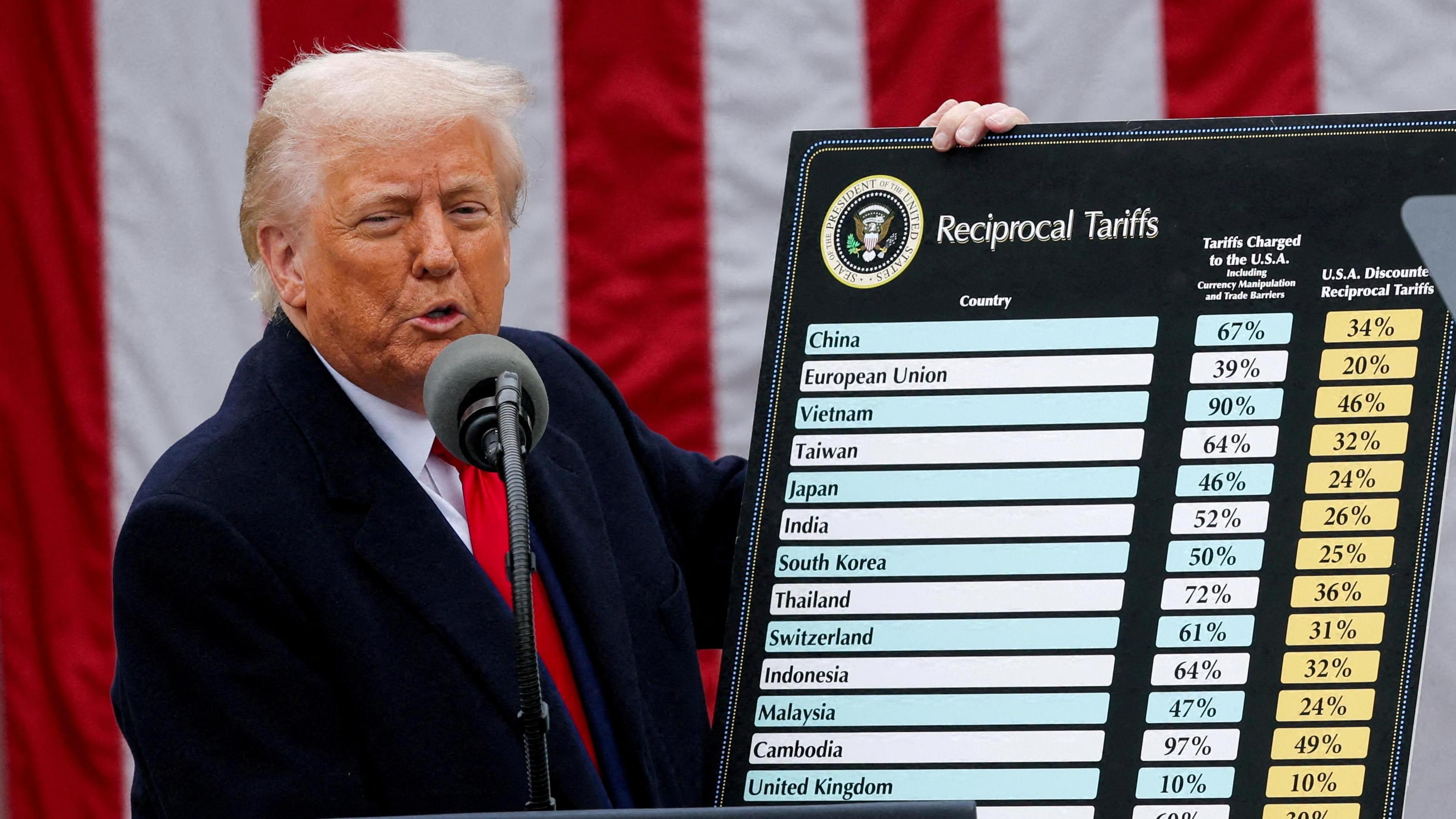
Donald Trump has slapped steep tariffs on exports from dozens of trading partners including Canada, Brazil, India and Taiwan, ahead of a Friday trade deal deadline.
The order applies to 68 countries and the 27-member European Union. Nations not listed in the order will face a baseline 10 per cent tariff.
The President’s order said that some trading partners, “despite having engaged in negotiations, have offered terms that, in my judgement, do not sufficiently address imbalances in our trading relationship or have failed to align sufficiently with the United States on economic and national security matters”.
Other details are still to come, including on the “rules of origin” that will determine what products might face even higher tariffs.
Canada faces tariff increase
Trump issued a separate order for Canada that raises its rates from 25 per cent to 35 per cent, claiming the US neighbour had “failed to co-operate” in curbing fentanyl flows into the US.
The announcement, which blamed Canada’s “continued inaction and retaliation”, also came after Trump criticised the country for its decision to recognise the state of Palestine by September.
In a post on social media, Trump had said the move “will make it very hard for us to make a Trade Deal with them. Oh’ Canada!!!”
Later on Thursday the President told NBC News he was open to further discussions with Canada, adding that he may even speak with Prime Minister Mark Carney later in the night.
Trade partners with deals
Britain was the first among around eight countries or blocs to have made an agreement with Washington.
A UK-US trade agreement was unveiled in May, including measures to ease long-standing trade tensions and shield the UK from the impact of Trump’s wide-ranging tariff regime.
Read Next: Trump’s tariff chaos is making him look weaker by the day
Other countries and regions that have reached agreements include the EU, Japan, South Korea, Indonesia, Philippines, Pakistan and Vietnam.
Despite not yet striking a deal, Trump left 10 per cent baseline tariffs on Australian goods unchanged, according to the country’s trade minister.
“While we remain in the best possible position under the United States’ new tariff regime, we will continue to advocate for the removal of all tariffs in line with our free trade agreement,” a spokesperson said in a statement.
However questions remain over China, which is facing a 12 August deadline to reach a durable tariff agreement with Trump’s administration.
A US official told reporters that they are making progress toward a deal.
Mexico granted extension
The higher tariffs on Canadian goods contrasted sharply with Trump’s decision to grant Mexico a 90-day reprieve from higher tariffs of 30 per cent on many goods to provide more time to negotiate a broader trade pact.
The extension for Mexico avoids a 30 per cent tariff on most Mexican non-automotive and non-metal goods compliant with the US-Mexico-Canada agreement on trade and came after a Thursday morning call between Trump and Mexican President Claudia Sheinbaum.
“We avoided the tariff increase announced for tomorrow,” Sheinbaum wrote on X, adding that the Trump call was “very good”.
Trump said the US would continue to levy a 50 per cent tariff on Mexican steel, aluminium and copper and a 25 per cent tariff on Mexican autos and on non-USMCA-compliant goods subject to tariffs related to the US fentanyl crisis.
Other rates
Imports from some countries are facing additional tariffs that stack on top of the reciprocal tariffs.
Trump hit Brazil’s exports with a steep 50 per cent tariff as he escalated his fight with Latin America’s largest economy over its prosecution of his friend and former president Jair Bolsonaro, but softened the blow by excluding sectors such as aircraft, energy and orange juice.
Goods from India appeared to be headed for a 25 per cent tariff after talks bogged down over access to India’s agriculture sector.
Trump has already faced serious questions over his tariffs.
The Court of International Trade ruled in May that the actions exceeded his executive authority.
Questions from judges during oral arguments before the US Appeals Court for the Federal Circuit in Washington indicated further skepticism.
Trump invoked the 1977 International Emergency Economic Powers Act to declare an emergency over the growing US trade deficit and impose his “reciprocal” tariffs and a separate fentanyl emergency.
With input from agencies
